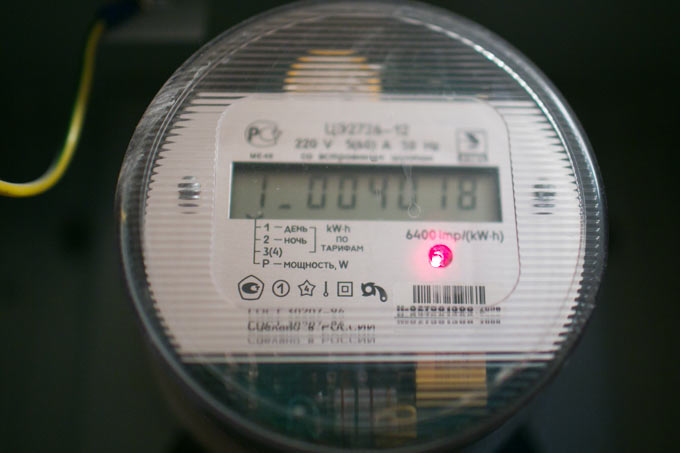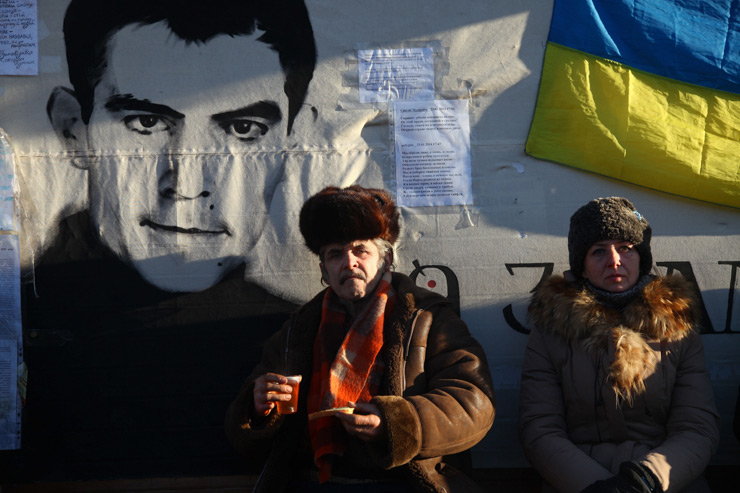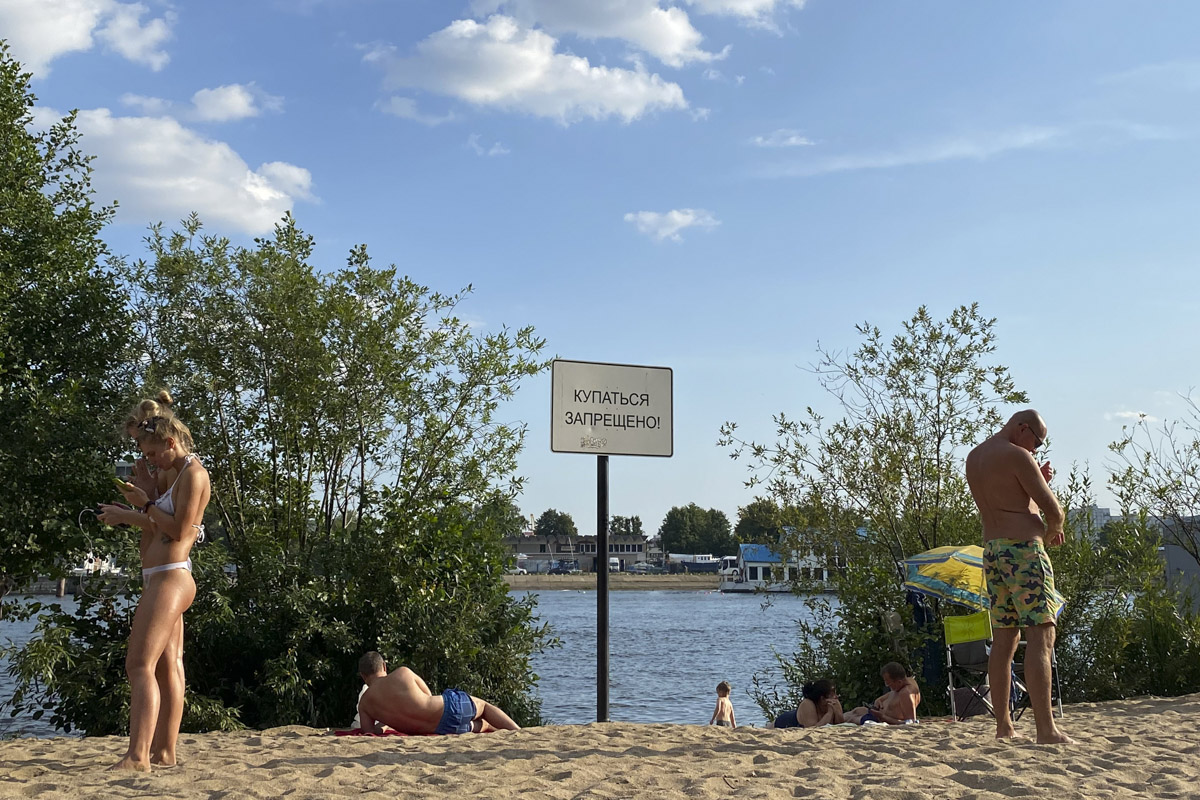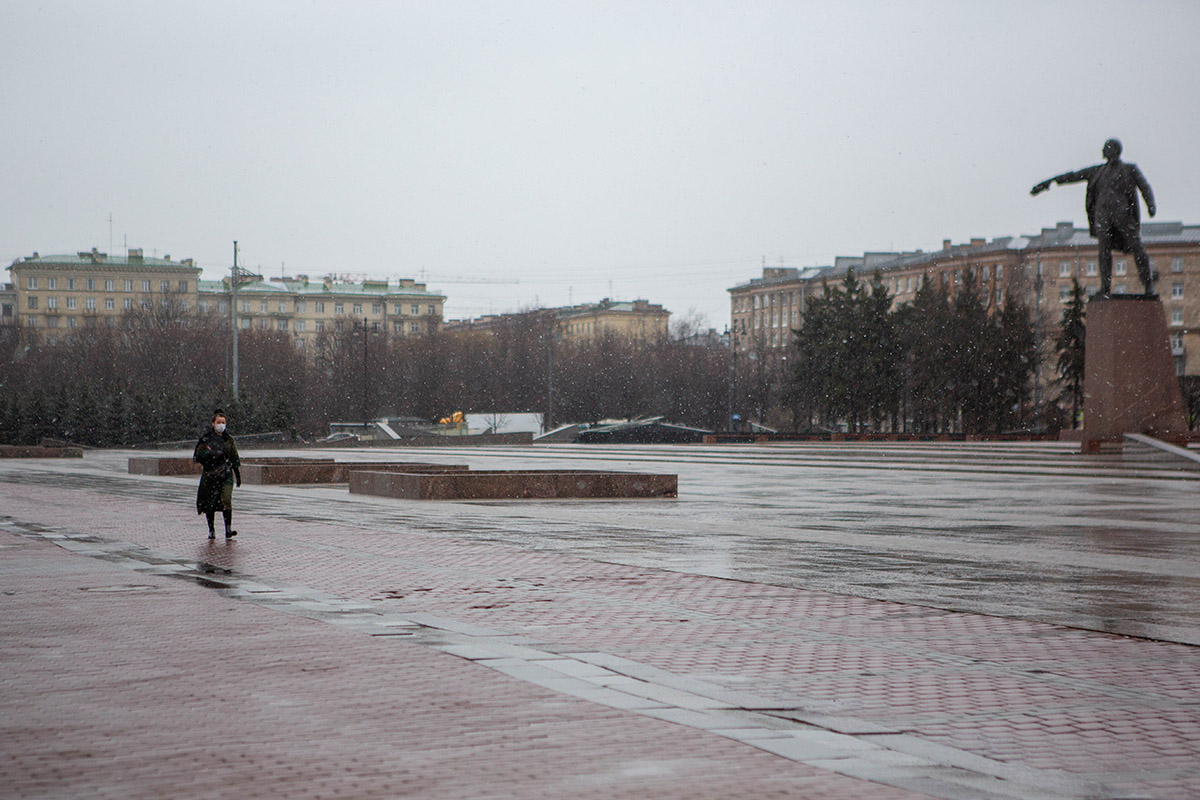En
Icicles and utility bills are more popular than Snowden
 St. Petersburg governor Georgy Poltavchenko’s housing and utilities media rating has fallen while the head of Moscow District Andrey Vorobyev has replaced him in the second position on the list.
At the same time the topic of housing and utilities sector has rocketed during the electoral campaign in Moscow. Political experts believe that both the opposition and pro-Kremlin politicians are trying to feed on this subject. Meanwhile only the executive branch is trying to put this question aside because it’s notoriously no-win subject for them.
Sergei Sobyanin, interim mayor of Moscow has taken the lead in June’s “Medialogiya” rating which monitors the popularity of governors’ actions in housing and utility sector. The second position is held by Andrey Vorobyev while Georgy Poltavchenko who used to be on Vorobyev’s place last month gets the bronze in June.
The popularity of Moscow’s mayor has risen after he had declared that the increase of utility payments in June the 1st would be the smallest one since the fall of the Soviet Union and, in fact, it will be no higher than the inflation level.
Vorobyev has improved his rating by signing a new addendum to the agreement with the Housing and Utilities Fund. Another positive factor is that he was the first governor in 2013 who had applied for financing the relocation of residents from slum dwelling.
Poltavchenko has managed to stay in top-three by making a speech at the 31st of May session of the State Council which was devoted to the topic of housing and utilities. He was also the one responsible for the session.
Russian President Vladimir Putin is the best at exploiting this subject out of all top politicians.
The subject of housing and utilities is well-known to be one of the most critical topics in Russia. That’s why only the laziest politicians don’t use it to improve their public images. Russian President Vladimir Putin is the best at exploiting this subject out of all top politicians. Moreover, he manages to increase his approval even when it contradicts the common sense. Thus this February the head of the state has severely criticized regional bureaucrats for the cost of utility. After this public disapproval some civil servants were dismissed including the “Utilities” vice-governor of Saint Petersburg Sergei Kozyrev. Whereas the President was probably too shy to reveal the fact that the recent utility bills rise had been provoked by the Government Decree #354 dated May the 6th 2011 which had been passed by the government when he was the Prime Minister.
Usually the criticism of the utilities sector looks more logical from those who didn’t make awkward decisions. This topic is the favorite for the Communist Party and the Just Russia Party while Alexey Navalny, the blogger, and his followers have even developed a web-site called “RusUtil” which automatically sends the complaints about the utilities to local bureaucrats (very handy for users who only have to fill the application form). Navalny has made the subject of utilities one of the most valuable in his campaign for Moscow mayor’s office.
From time to time The United Russia and The People’s Front also try to exploit this topic. For instance, Sergei Naryshkin, a Leningrad District’s representative and the Speaker of the Duma regularly makes counsels on this topic in his poll district.
The topic of utilities and housing is a double-edged blade in the hands of both the government and opposition, - a political expert Dmitry Gavra reckons. – The example of Yaroslavl’s mayor Evegeny Urlashov portraits it the best. We all remember that Urlashov won the elections with the help of social unrest due to poor city utilities management of the previous mayor. Urlashov has focused his criticism on disgusting condition of roads and housing.
Following the logic, The United Russia should be responsible for the problems of housing and utilities because that was its creatures that hold most of the mayors’ and governors’ offices around Russia.
- However during the last year and a half since the previous Duma elections governors and mayors have separated themselves from the United Russia in public image, plus the phrase “United Russia” has almost disappeared from television, - mentions the expert. – And now the ruling party has started to use the subject of utilities to promote itself. It is even more apparent when the People’s Front comes on stage. It’s easier for the Front because it works directly with the President going over the heads of the governors.
At the same time the executive power has no chances to improve its image by appealing to the utilities sector, a political expert Vladimir Vasilyev figures out.
- It’s better for them to keep silence on that matter and that’s what they actually prefer to do, - he underlines. – Any fuss in the media about the utilities sector damages the public image of the executive branch because it’s always bad news: whether it is icicles, utility bills rise or burst main.
That is why the common Election Day was set to September, Dmitry Gavra believes.
- In summer the roofs don’t leak, there are no snow piles in the streets and the memories about the horrors of previous winter tend to fade during the nice summer months, - explains the expert. – It kind of leaves the opposition with an empty bag.
- Regarding the opposition itself let’s first divide it into the groups of “systemic opposition” and “non-systemic opposition”, - Vladimir Vasilyev suggests. – Non-systemic opposition appeals to this topic occasionally. The utilities sector is not its favorite. It’s more interested in more specific political problems such as electoral transparency and elections’ legitimacy. On the other side this topic is #1 on the agenda of systemic opposition, e.g. for The Communist Party and The Just Russia Party. They track all the changes and they very often make statements about it.
However, Dmitry Gavra thinks that opposition uses the topic of utilities “very much speculatively”.
- The current condition of the utilities sector is so bad that it needs multi-billion rubles investments. So that the government may set progressive taxation and increase the VAT in order to find the money for it, - he says. – And mayor Navalny can do literally nothing serious about it in five years. He certainly can decrease the level of corruption to some extinct, he might replace 100-200 bureaucrats but he won’t be able to break this system. People with common sense understand this. I think that even Navalny himself understands it. But since the topic of leaks and poor quality of cleaning is more concerns the people more than Edward Snowden’s stay in Sheremetyevo’s transit zone, this topic will be actively exploited. Moreover, the closer it gets to winter the more actively it’s going to be used by politicians.
Thus, the authorities will hardly be able to change the situation for the better in a couple of years, Vladimir Vasilyev reckons.
- Points of tenderness in the utilities sector are all well-known, - the expert says. – One of the main problems is the stealing in utility organizations. But unfortunately we can hardly see any representatives of such organizations being prosecuted for crime. If we take a look at the statistics of business offenses we’ll see that the utility sector criminals are in the bottom of the list.
By George Yegoroff
Translated by Daniil Suprunchuk
St. Petersburg governor Georgy Poltavchenko’s housing and utilities media rating has fallen while the head of Moscow District Andrey Vorobyev has replaced him in the second position on the list.
At the same time the topic of housing and utilities sector has rocketed during the electoral campaign in Moscow. Political experts believe that both the opposition and pro-Kremlin politicians are trying to feed on this subject. Meanwhile only the executive branch is trying to put this question aside because it’s notoriously no-win subject for them.
Sergei Sobyanin, interim mayor of Moscow has taken the lead in June’s “Medialogiya” rating which monitors the popularity of governors’ actions in housing and utility sector. The second position is held by Andrey Vorobyev while Georgy Poltavchenko who used to be on Vorobyev’s place last month gets the bronze in June.
The popularity of Moscow’s mayor has risen after he had declared that the increase of utility payments in June the 1st would be the smallest one since the fall of the Soviet Union and, in fact, it will be no higher than the inflation level.
Vorobyev has improved his rating by signing a new addendum to the agreement with the Housing and Utilities Fund. Another positive factor is that he was the first governor in 2013 who had applied for financing the relocation of residents from slum dwelling.
Poltavchenko has managed to stay in top-three by making a speech at the 31st of May session of the State Council which was devoted to the topic of housing and utilities. He was also the one responsible for the session.
Russian President Vladimir Putin is the best at exploiting this subject out of all top politicians.
The subject of housing and utilities is well-known to be one of the most critical topics in Russia. That’s why only the laziest politicians don’t use it to improve their public images. Russian President Vladimir Putin is the best at exploiting this subject out of all top politicians. Moreover, he manages to increase his approval even when it contradicts the common sense. Thus this February the head of the state has severely criticized regional bureaucrats for the cost of utility. After this public disapproval some civil servants were dismissed including the “Utilities” vice-governor of Saint Petersburg Sergei Kozyrev. Whereas the President was probably too shy to reveal the fact that the recent utility bills rise had been provoked by the Government Decree #354 dated May the 6th 2011 which had been passed by the government when he was the Prime Minister.
Usually the criticism of the utilities sector looks more logical from those who didn’t make awkward decisions. This topic is the favorite for the Communist Party and the Just Russia Party while Alexey Navalny, the blogger, and his followers have even developed a web-site called “RusUtil” which automatically sends the complaints about the utilities to local bureaucrats (very handy for users who only have to fill the application form). Navalny has made the subject of utilities one of the most valuable in his campaign for Moscow mayor’s office.
From time to time The United Russia and The People’s Front also try to exploit this topic. For instance, Sergei Naryshkin, a Leningrad District’s representative and the Speaker of the Duma regularly makes counsels on this topic in his poll district.
The topic of utilities and housing is a double-edged blade in the hands of both the government and opposition, - a political expert Dmitry Gavra reckons. – The example of Yaroslavl’s mayor Evegeny Urlashov portraits it the best. We all remember that Urlashov won the elections with the help of social unrest due to poor city utilities management of the previous mayor. Urlashov has focused his criticism on disgusting condition of roads and housing.
Following the logic, The United Russia should be responsible for the problems of housing and utilities because that was its creatures that hold most of the mayors’ and governors’ offices around Russia.
- However during the last year and a half since the previous Duma elections governors and mayors have separated themselves from the United Russia in public image, plus the phrase “United Russia” has almost disappeared from television, - mentions the expert. – And now the ruling party has started to use the subject of utilities to promote itself. It is even more apparent when the People’s Front comes on stage. It’s easier for the Front because it works directly with the President going over the heads of the governors.
At the same time the executive power has no chances to improve its image by appealing to the utilities sector, a political expert Vladimir Vasilyev figures out.
- It’s better for them to keep silence on that matter and that’s what they actually prefer to do, - he underlines. – Any fuss in the media about the utilities sector damages the public image of the executive branch because it’s always bad news: whether it is icicles, utility bills rise or burst main.
That is why the common Election Day was set to September, Dmitry Gavra believes.
- In summer the roofs don’t leak, there are no snow piles in the streets and the memories about the horrors of previous winter tend to fade during the nice summer months, - explains the expert. – It kind of leaves the opposition with an empty bag.
- Regarding the opposition itself let’s first divide it into the groups of “systemic opposition” and “non-systemic opposition”, - Vladimir Vasilyev suggests. – Non-systemic opposition appeals to this topic occasionally. The utilities sector is not its favorite. It’s more interested in more specific political problems such as electoral transparency and elections’ legitimacy. On the other side this topic is #1 on the agenda of systemic opposition, e.g. for The Communist Party and The Just Russia Party. They track all the changes and they very often make statements about it.
However, Dmitry Gavra thinks that opposition uses the topic of utilities “very much speculatively”.
- The current condition of the utilities sector is so bad that it needs multi-billion rubles investments. So that the government may set progressive taxation and increase the VAT in order to find the money for it, - he says. – And mayor Navalny can do literally nothing serious about it in five years. He certainly can decrease the level of corruption to some extinct, he might replace 100-200 bureaucrats but he won’t be able to break this system. People with common sense understand this. I think that even Navalny himself understands it. But since the topic of leaks and poor quality of cleaning is more concerns the people more than Edward Snowden’s stay in Sheremetyevo’s transit zone, this topic will be actively exploited. Moreover, the closer it gets to winter the more actively it’s going to be used by politicians.
Thus, the authorities will hardly be able to change the situation for the better in a couple of years, Vladimir Vasilyev reckons.
- Points of tenderness in the utilities sector are all well-known, - the expert says. – One of the main problems is the stealing in utility organizations. But unfortunately we can hardly see any representatives of such organizations being prosecuted for crime. If we take a look at the statistics of business offenses we’ll see that the utility sector criminals are in the bottom of the list.
By George Yegoroff
Translated by Daniil Suprunchuk
 Человек города: Алексей и Мария, гендиректор и многодетная мама, 30 и 39 лет
Планируете ли вы посмотреть фильм «Матильда»?
Человек города: Алексей и Мария, гендиректор и многодетная мама, 30 и 39 лет
Планируете ли вы посмотреть фильм «Матильда»?



 Сообщи о важном
Сообщи о важном

